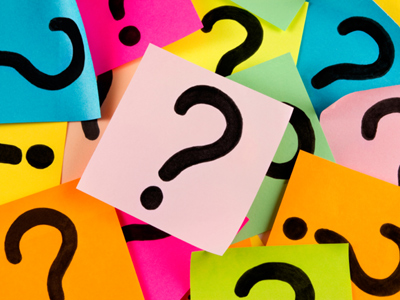
Do you know how to change a sentence into a question?
Asking Questions
Get ready for a fun KS2 English quiz all about asking questions! Punctuation is like magic when we ask questions in writing.
In Spanish, they have an upside-down question mark at the start. In English, we rely on word order. 'You are' becomes 'Are you?' – see how the words flip? Take this quiz and become a question wizard! Test your question-making skills and have a blast!
Discover the Joy of Learning Together with QuizzesTo see a larger image, click on the picture.
1.
2.
3.
4.
5.
6.
Change this statement into a question.
I can smell something delicious cooking for tea.
I can smell something delicious cooking for tea.
I can smell something delicious cooking for tea?
Can I smell something delicious cooking for tea.
Can I smell something delicious cooking for tea?
Is something delicious cooking for tea?
The last answer makes sense but forgets to mention smell.
7.
Change this statement into a question.
He has wanted to be a doctor since he was a child.
He has wanted to be a doctor since he was a child.
Has he wanted to be a doctor since he was a child?
Has he wanted to be a doctor since he was a child.
Did he want to be a doctor since he was a child?
Does he want to be a doctor since he was a child?
'He has' simply becomes 'has he'.
8.
Change this statement into a question.
We will be visiting the museum later today.
We will be visiting the museum later today.
Will we be visiting the museum later today?
Will we be visiting the museum later today.
Is the museum open later today?
The museum will be open later today?
In some instances, you might hear this as a question: 'We will be visiting the museum later today?' - using this word order would only be as a repetition of the original statement in order to express surprise.
9.
**Unlimited Quizzes Await You! 🚀**
Hey there, quiz champ! 🌟 You've already tackled today's free questions.
Ready for more?
Ready for more?
🔓 Unlock UNLIMITED Quizzes and challenge yourself every day. But that's
not all...
not all...
🔥 As a Subscriber you can join our thrilling "Daily Streak" against other
quizzers. Try to win a coveted spot on our Hall of Fame Page.
quizzers. Try to win a coveted spot on our Hall of Fame Page.
Don't miss out! Join us now and keep the fun rolling. 🎉
**Unlimited Quizzes Await You! 🚀**
Hey there, quiz champ! 🌟 You've already tackled today's free questions. Ready for more?
🔓 Unlock UNLIMITED Quizzes and challenge yourself every day. But that's not all...
🔥 As a Subscriber you can join our thrilling "Daily Streak" against other quizzers. Try to win a coveted spot on our Hall of Fame Page.
Don't miss out! Join us now and keep the fun rolling. 🎉

















